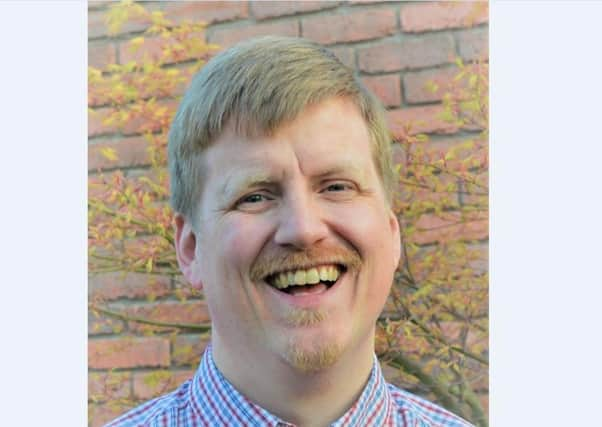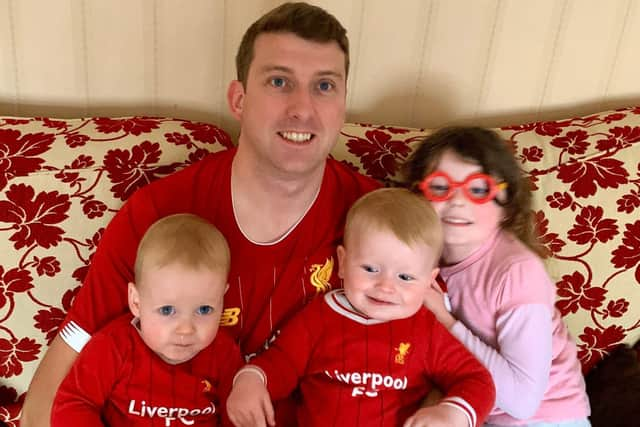The power of prayer: Paul Coulter and Pastor Mark McClurg on the mental health benefits


“Sceptics might dismiss the belief that prayer benefits mental health as a superstitious hangover from less enlightened times. But they would be mistaken,” says Dr Paul Coulter, a non-practising medical doctor from Lisburn, who has worked as a pastor and a theology lecturer.
Dr Coulter, who is executive director of the Centre for Christianity in Society (www.christianityinsociety.org), which seeks to connect Christian faith and thinking with contemporary culture, said numerous scientific studies have shown not only that religious people have lower rates of anxiety and depression, but also that, on average, they live longer, have better coping skills and quality of life, and (probably) recover better from illness.
Advertisement
Hide AdAdvertisement
Hide Ad“So, it seems that prayer, at least within a sincere religious faith, is good for both mental and physical wellbeing,” he said.


“That’s as far as science can take us. It simply can’t tell us why religion is good for us or whether religious claims are actually true. We can say, though, that, in this respect as in many others, scientific findings are perfectly consistent with belief that God exists. In fact, I would argue that God’s existence is the best explanation behind both human experience (how we live) and scientific evidence (the world we live in).”
He added: “That raises another obvious question. Is the God we instinctively pray to in times of trouble shrouded in impenetrable mystery? The Christian answer is a resounding no! God has spoken in words recorded in the Bible. And, in Jesus Christ, God stepped into our world in the greatest answer to prayer ever, to seek and save people who were far from God. Jesus taught his followers to pray in a radically new way, not to distant deity, but to “our Father”.
So, should we all pray because it’s good for us?
“Well, prayer might start with self-serving motives, but Christian prayer has a way of turning us outwards in love for others,” said Dr Coulter.
Advertisement
Hide AdAdvertisement
Hide Ad“Prayer’s ultimate benefit might be that it changes us. Or, rather, God transforms us as we express worship, confess sins, seek guidance, and give thanks. Prayer is no magic formula and God is no genie in a lamp. Christian prayer is a conversation with the God who loves us and who wants to do much more in us than we imagine.”
A new survey has found that more than a third of UK adults believe prayer can help them overcome mental health struggles.
The poll commissioned by the Eternal Wall of Answered Prayer - a Christian architectural sculpture to be built near Birmingham - revealed 38 per cent of adults believe that prayer is good for their mental health.
The Eternal Wall of Answered Prayer is a landmark which will eclipse the size of the Angel of the North and aims to profile a million answered prayers. The structure will be surrounded by 10 acres of landscaped ground, providing an opportunity for reflection and prayer. Construction begins this year and the site is set to open in early 2023.
Advertisement
Hide AdAdvertisement
Hide AdFounder Richard Gamble said: “Every single one of a million bricks represents a story of answered prayer to make hope visible to all who see this Christian monument. When visitors get close up they will see these bricks and will be struck with the realisation that each one has a story attached. It will point them to the God who answers.”
The survey also found that more than four in 10 believe prayer can make them feel more hopeful, despite only a quarter saying they felt more hopeful today than they did 10 years ago.
Mr Gamble added: “While it is encouraging to note that almost 40 per cent of the country believe prayer is good for mental health, we need to see prayer as more than just another tool in the wellbeing first aid kit, and more conversation with God. Prayer can bring hope, and hope is one of the most powerful forces in the universe.”
Co Down pastor Mark McClurg, who is still recovering more than a year on from a near-fatal battle with Covid, said prayer has helped sustain him during his illness.
Advertisement
Hide AdAdvertisement
Hide AdIn February 2021 the Pastor at Ards Elim Church put a post on social media asking for prayers during a second stint in hospital after developing clots on his lungs.
Now, still suffering from the effects of Long Covid including pain, chronic fatigue and brain fog, the father-of-three said those prayers, from all across the world, have helped him cope.
“Prayer has been a big part of my life, before Covid and after as well.
“It’s not the actual prayer (that keeps our spirits up), but who we are praying to. When I am praying to Jesus, the lovely thing is He gives me peace of God; it’s a lovely little thing that Christians can have.
Advertisement
Hide AdAdvertisement
Hide Ad“Christians go into the doctor and maybe the doctor has told them the most heart-breaking news, they are still settled with the peace of God. It doesn’t make sense, but it gets your through.
“I have Covid and trauma and I’ve spent months with a clinical psychologist and every time I was with him, he said ‘what you have is what I try to give other people - and that’s hope. And I said the only reason I have hope is because I have Jesus. For me prayer is about a relationship between two people who love each other, Jesus and myself.”